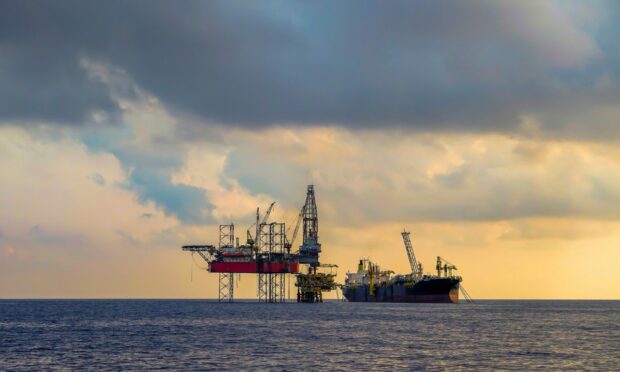A new oil discovery at a North Sea field could be used to supply cleaner materials for fast-charging electric vehicle batteries.
Orcadian Energy said the Fynn field in the Moray Firth contains a “very substantial” amount of viscous and heavy oil.
The firm, which holds a 50/50 share on the oil with Aberdeen firm Parkmead, has entered into three binding agreements for North Sea fields.
Made up of long chain hydrocarbons, when refined the oil is a good feedstock for anode grade petroleum coke, an essential component for fast-charge EV batteries.
The Fynn field, which is a similar scale to Rosebank, could help create “crucial components” for electric vehicles.
Energy firm is ‘no longer a one-trick pony’
Orcadian Energy chief executive Steve Brown believes the firm is “no longer a one-trick pony”.
As it expands, he believes the firm now offers multiple pathways to success as well as delivering future value to shareholders.
Mr Brown said: “Our strategy has been to focus on the post-transition hydrocarbons – gas and viscous oil.
“In a shallow water mature basin, almost by definition, the big fields with great rocks and simple fluids have all already been developed.
“A combination of geothermal heat and polymer could unlock the Fynn development, which is a project of the same scale as Rosebank.”
Orcadian believes that gas and viscous oils will be “essential to the prosperity of every economy”.
It said producing heavy oil domestically is a “considerably better” option than importing from Venezuela or Canada.
Mr Brown added: “On the mid-North Sea high, we have identified a number of shallow gas prospects with the same characteristics as the A and B block gas fields that have been successfully developed in the Dutch sector.
“We, with our industry partner, are confident we have a solution to deal with the high level of inerts.
“Beyond that, we believe we will be able to deliver a reliable supply of near-zero emissions power to the grid.”
Orcadian Energy on UK’s ‘need’ for viscous oils
Orcadian believes the UK “needs” viscous oils both a number of reasons, including a “strategic security of energy”.
It also believes it would help to support petrol-derived products which will aid the transition and post-transition economy.
Orcadian said buying products made form imported petrol rather than its own oil damages the balance of payments while also eliminating “great jobs”.
The firm will take a polymer flood approach, incorporating heat from geothermal sources to reduce reservoir oil viscosity and electrifying production systems using green energy.
It said the emissions per barrel in the production process can be reduced to single figures, better than most UK light oil fields.


Conversation